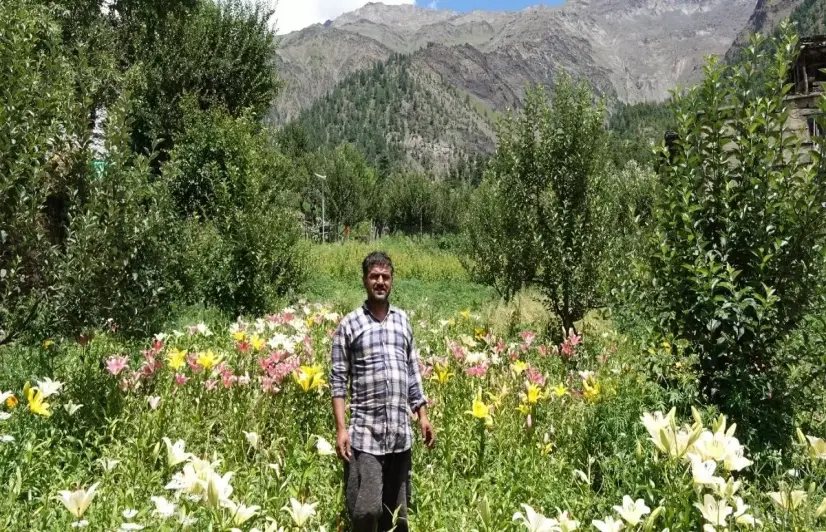Pandemic wilts Himachal's floriculture industry

Pandemic wilts Himachal's floriculture industry
The multi-crore flower industry is on its knees with the lockdown bringing all weddings and other celebrations to a halt.
Shimla: The dark hues of the COVID-19 pandemic have dulled the colourful vibrancy of the floriculture industry of Himachal Pradesh. Once a major draw at five-star hotels, weddings and functions, these flowers are being fed to cattle for want of takers. Curbs on tourism and functions due to the ongoing pandemic have seriously impacted the livelihood of Himachal floriculturists, while those who had taken loans from banks are on the verge of bankruptcy.
From crores to zero
According
to the Horticulture Department of Himachal Pradesh, the state produces Rs
150-200 crores of flowers annually. Thousands of farmers in six districts of the
state are engaged in floriculture. Today, vanishing markets have forced these
farmers to feed their produce to cattle. As lockdowns and curbs continue, the
farmers are losing all hope of rejuvenating their business.
Normally, the marriage season, which extends from February-end to June every year, is a boom time, with flowers riding a crest in demand. But recent times have seen the pandemic at its worst during these months, necessitating nationwide curbs and lockdowns. As a consequence, floriculturists have encountered huge losses over the past year.
With no takers for flowers anymore, they are being fed to cattle (Picture courtesy: Rohit Prashar)
The Solan
district of Himachal Pradesh alone sees business worth Rs 100 crores transacted
in flowers. Farmer Ravi Varma from Chail in Solan district has incurred a loss
of Rs 30 lakhs over the past year. This year, he had planted new saplings worth
Rs 8 lakhs. With this, he intended to
make good his losses over the previous year. But with the pandemic worsening
since April this year, there were renewed curbs and lockdowns, preventing any
sales.
“The government has extended some relief
measures, but these are hardly sufficient for farmers to tide over their losses,”
he lamented.
According
to Varma, Himachal Pradesh primarily specialises in carnation flowers. Each carnation
plant is bought for Rs 15; nurturing and pesticides cost another Rs 5-8 for the
farmer; only then can a carnation stick sell for Rs 20-25 in the market. “But
the earnings of flower cultivators have dropped to zero over the past year,
causing us all immense mental turmoil.”
Sunil Kumar, another farmer from Solan, told 101Reporters, "Flowers are used in large quantities at weddings, fairs, Navratri and other religious functions, hotels and social occasions. Curbs imposed on all these have prevented the sale of flowers. Besides, flowers are a highly perishable commodity that cannot be stored.”
Solutions for a turnaround
Ruing the
impact of the coronavirus pandemic on floriculturists, Phal Sabji Evam Phul
Utpadak Sangh President Harish Chauhan told 101Reporters, “The government
ought to take immediate steps to write off the loans taken by flower growers
from banks. This is the only way to ease the situation the farmers find themselves
in.”
It should
be realised that a flowering plant yields flowers for three full years. A rose
bush, once planted, may last even longer. Thus, if a farmer uproots his flowering
plants to cultivate some other products, it will only increase his losses many
times over. Thus, it is not wise to move on to cultivating another crop.
Hence, given the circumstances, all that the farmers can do is to pray for the end of the present pandemic, and a renewal of business.
Cut carnation flowers, which used to sell for Rs 20-25 per stick, are lying unwanted (Picture courtesy: Rohit Prashar)
Would you like to Support us
101 Stories Around The Web
Explore All NewsAbout the Reporter
Write For 101Reporters
Would you like to Support us
Follow Us On


